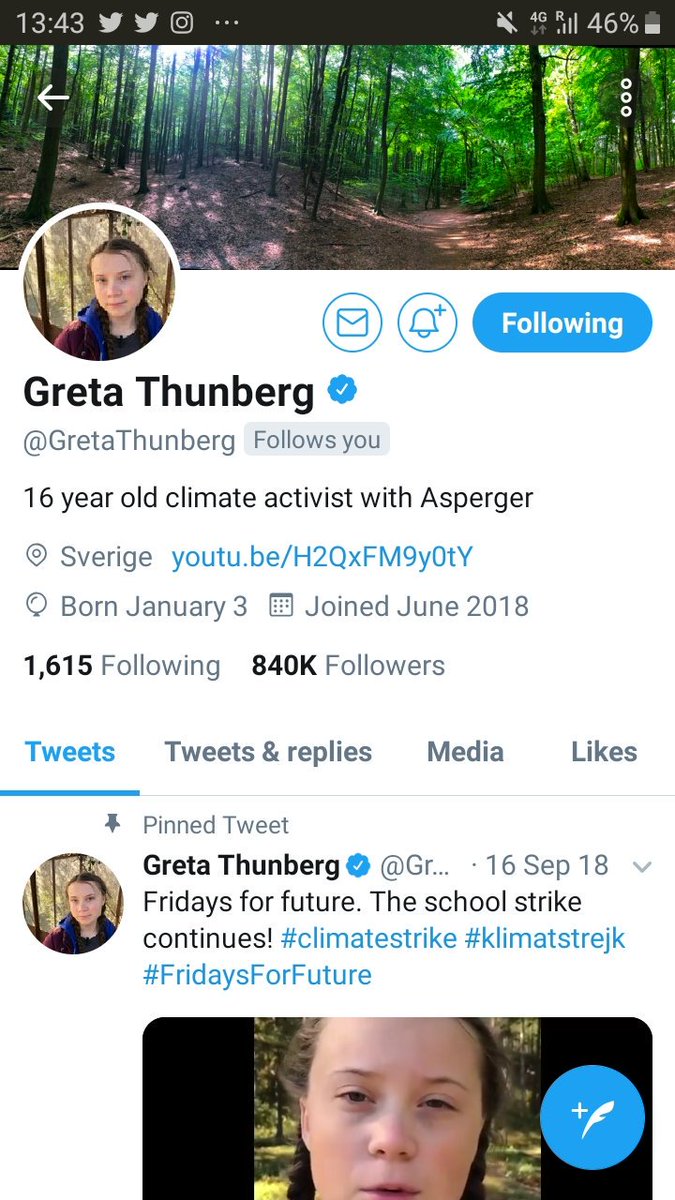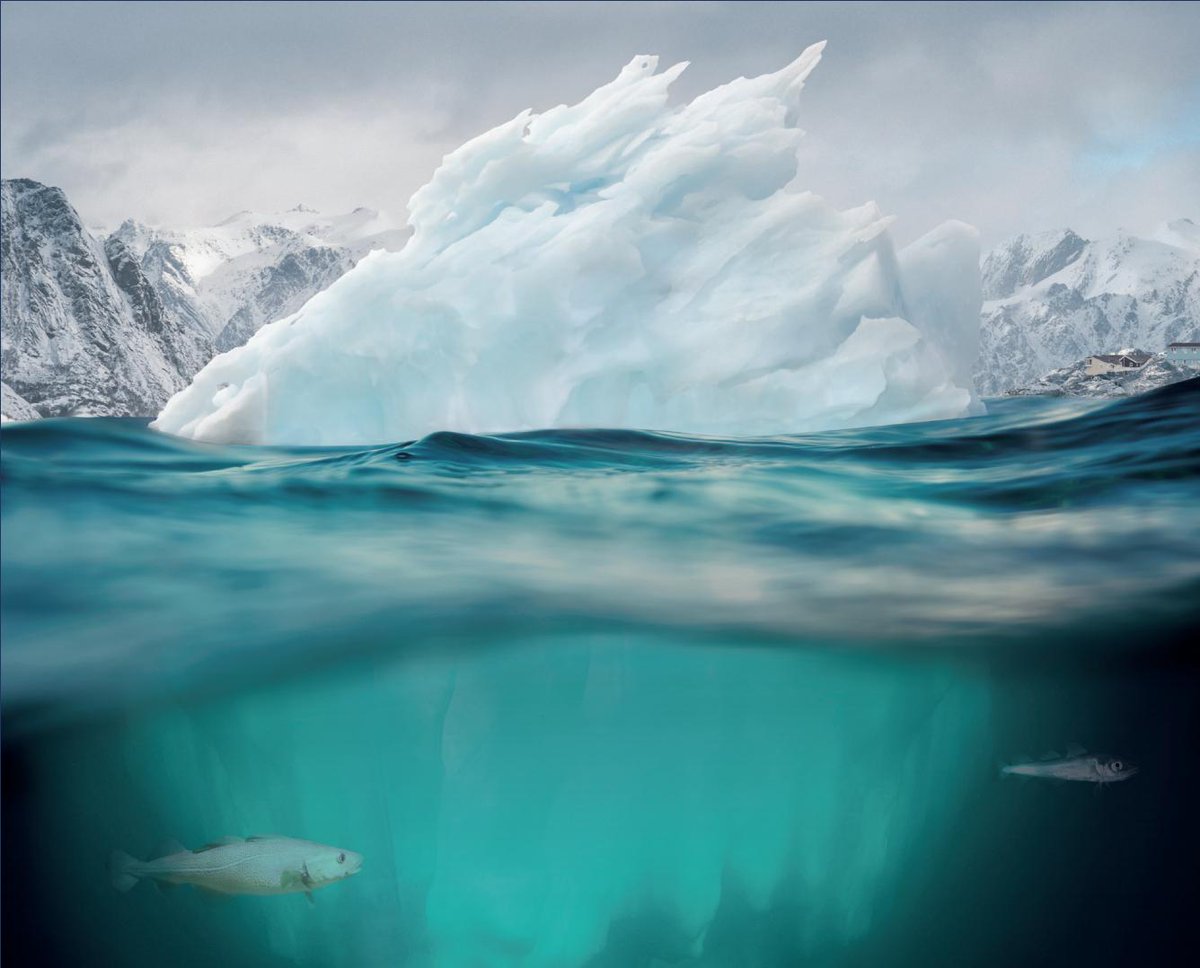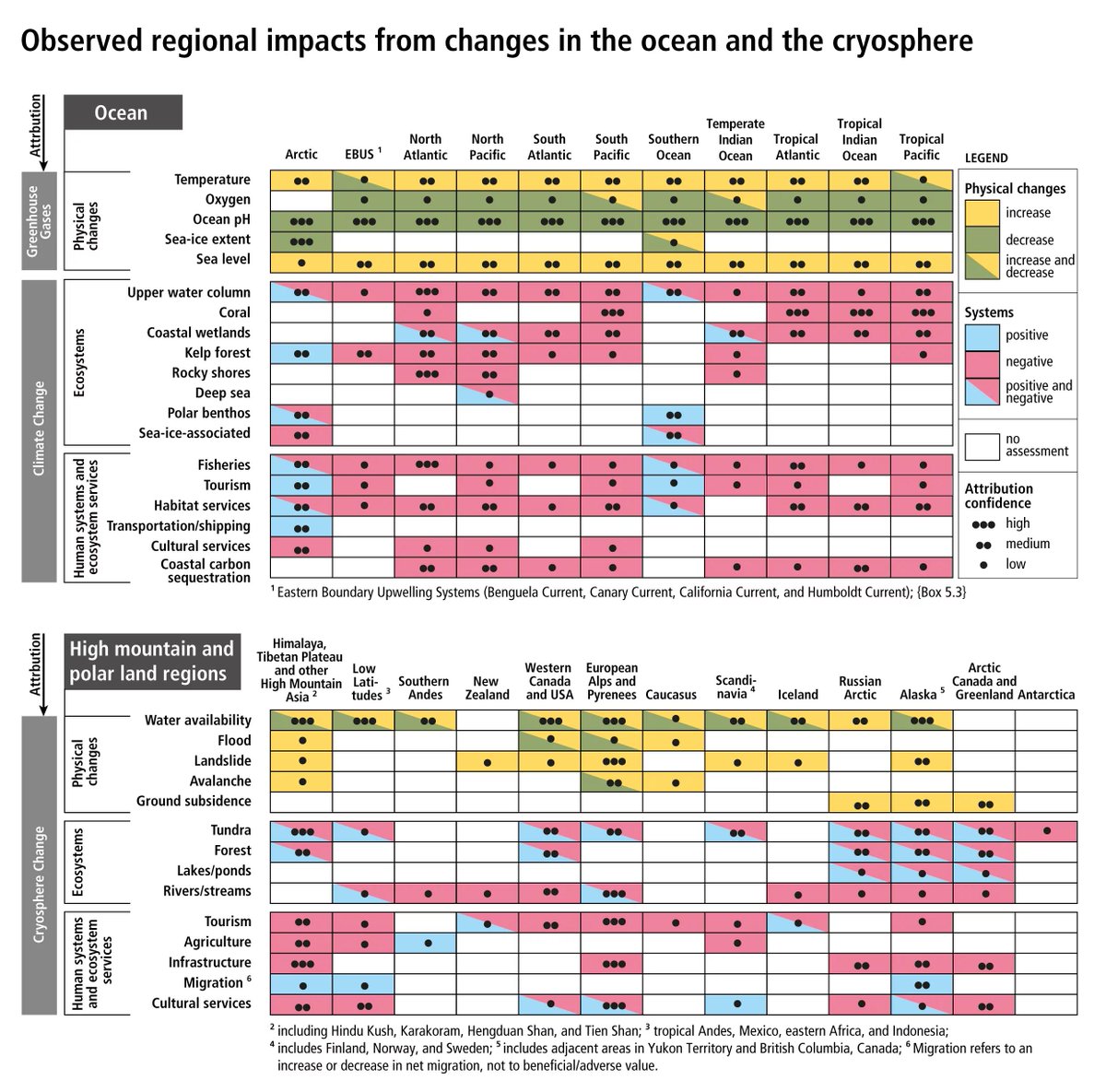in a Changing Climate (#SROCC), published last week. You can find it here: ipcc.ch/srocc/home/
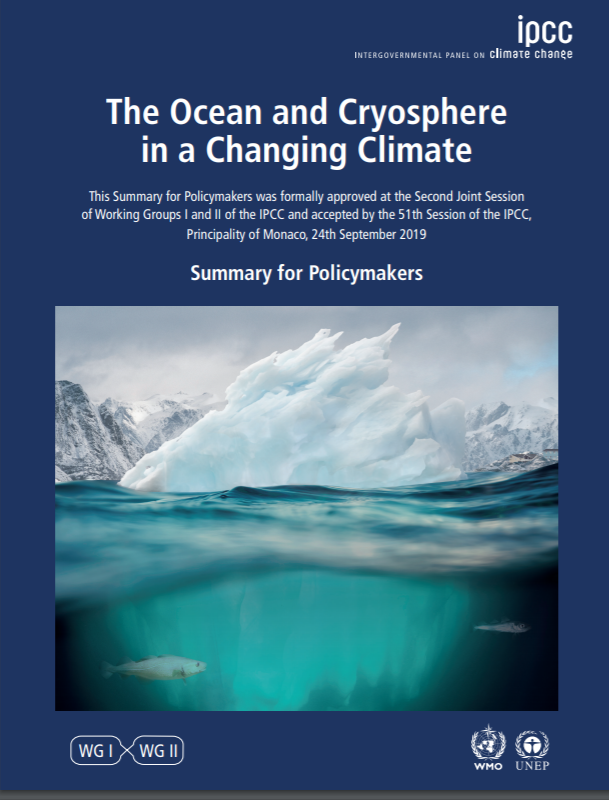
Snow cover is already shrinking too.
"Arctic June snow cover extent on land declined by 13.4 ± 5.4% per decade from 1967 to 2018, a total loss of approximately 2.5 million km2, predominantly due to surface air temperature increase (high confidence).
regions globally."
September sea ice reductions are very likely 12.8 ± 2.3% per decade. These sea ice changes in September are likely
unprecedented for at least 1000 years."
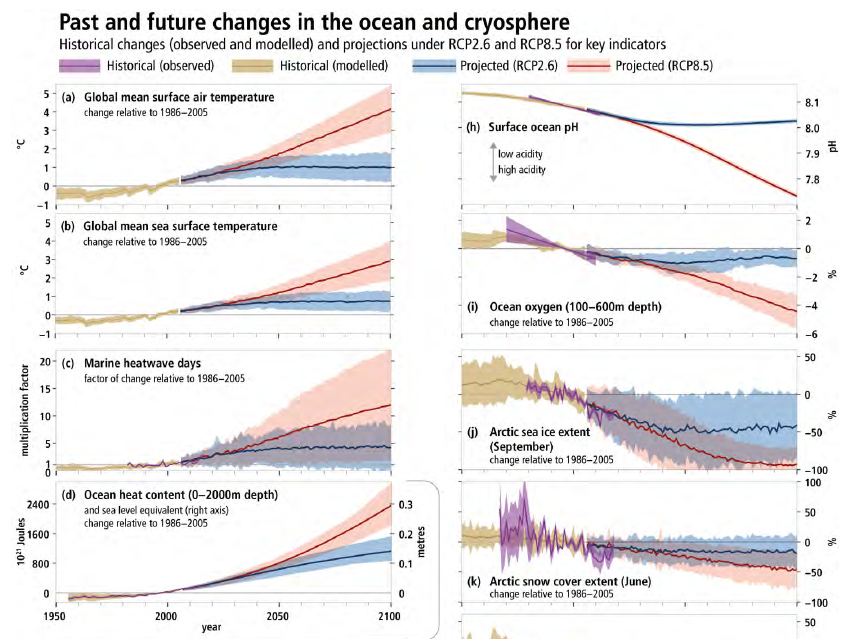
Global mean air temperature rise: 1.6°C (quite some uncertainty).
Global mean sea surface temperature: Just a few tenths of a °C warmer than now. Not a huge further growth in marine heatwaves.
The acidification of the ocean would hardly get worse than it is now, with already some recovery in the second half of the century. Same for oxygen decrease.
There would still be Arctic sea ice in September.



